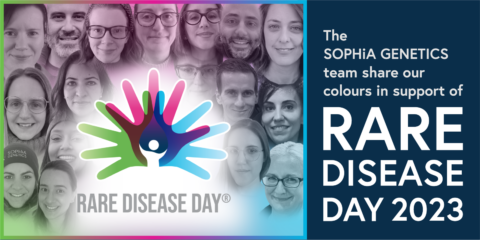Breast cancer patients are faced with varying challenges including genetic makeup, financial circumstances, and health care access. For this reason, researchers and technology developers are working hard to evolve options, to give patients around the world equal access to enhanced cancer detection and more personalized treatment.
Advanced medical imaging technology aids in breast cancer research
After initial concerns are raised by a patient, undergoing medical examination and imaging are usually the first steps of the diagnostic journey. Oftentimes, breast cancer patients do not exhibit symptoms, so multiple tests are done to diagnose breast cancer including mammograms, breast X-rays, ultrasounds, and magnetic resonance imaging (MRIs).
Imaging tests are helpful in detecting cell abnormalities, but as of now, a biopsy is still the only definitive way to prove a patient does in fact have breast cancer. During a biopsy, healthcare practitioners take a sample of breast tissue to perform further lab testing. Laboratory technicians can then check for the presence of biomarkers in the sample collected and confirm a patient’s cancer diagnosis.
The advancement of genomic analysis technology revolutionizes breast cancer research, as it provides better breast tumour classifications, which then leads to enhanced clinical management or precision oncology. For the development of precision medicine, not only the relatively static genetic codes of individuals, but also the dynamic and heterogeneous genetic codes of cancers need to be taken into account.
Biomarkers play an important role in cancer detection
A population-based case study published in the New England Journal of Medicine revealed that pathogenic variants in biomarkers BRCA1 and BRCA2 were associated with a high risk of breast cancer, while PALB2 was associated with a moderate risk. These two biomarkers have recently become essential in the early detection and treatment of certain cancers. Interestingly enough, the BRCA1 and BRCA2 biomarkers are also found in approximately 10% of women with epithelial ovarian cancer. It is through the evolution and adoption of better molecular analysis technology that clinicians are now able to utilize these important biomarkers and the insights they offer into the status of an individual’s potential cancer.
Few breast cancers are truly the same and personalized therapy is critical to minimize overtreatment and treatment-associated morbidity, while preventing recurrence and progression. Genetic profiling of patients is used to gain a comprehensive insight into the measurable benefits of a specific treatment, saving time and costs.
The future of breast cancer research involves AI and data-driven medicine
Radiomics is a process of extracting large volumes of quantitative data from digital medical images and amalgamating these together with general clinical and personal patient data into searchable shared databases. By analyzing multiple sources of data (multimodal) the researcher can start to visualize a much larger picture of an individual’s overall health.
The application of deep learning technology furthers precision oncology beyond the traditional approaches. Deep learning can now be applied to mammograms, allowing for high-risk patient identification by discovering patterns directly from the data collected. Medical researchers study this data with the help of artificial intelligence as applied in radiomics. In breast cancer, for example, radiomics has been recently used to identify molecular phenotypes and lymph node metastases, evaluate treatment response, and predict disease survival.
These recent advancements in technology enable researchers worldwide to collaborate and continually find new therapies through the ongoing globalization of clinical trials. SOPHiA GENETICS helps accelerate this process by providing a solution to optimize clinical trial site performance and find additional centres for ongoing trials not meeting recruitment goals. SOPHiA DDM™ Trial Match has been designed to connect individual cases with the appropriate clinical trial site where medical researchers run feasibility analyses for a patient’s enrollment process. This results in a growing network of research communities that allow for enhanced patient profiling for key genomic markers relevant to oncology. Ultimately, cancer centres are expected to offer more affordable and more precise treatment options to their patients.
SOPHiA DDM™ Trial Match is for research use only – not for use in diagnostic procedures












